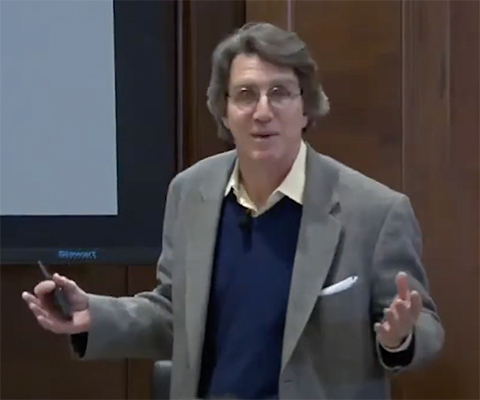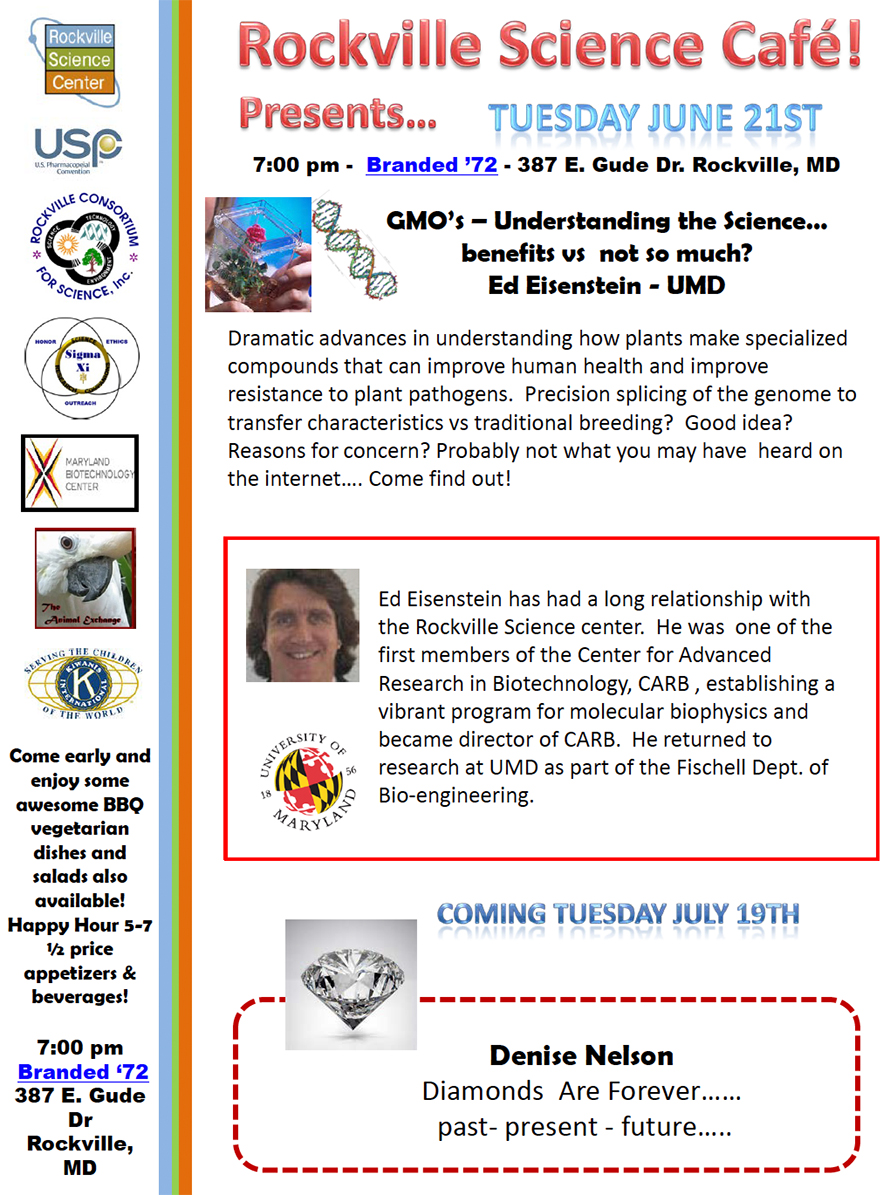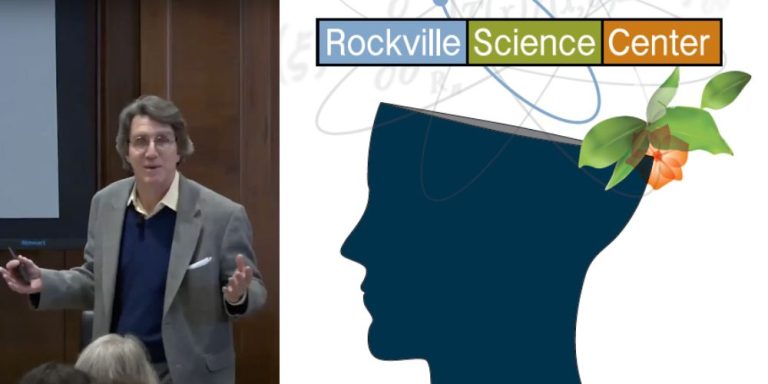Why was I so nervous? I had spoken at hundreds of seminars and classes, to large audiences, and even to politicians and legislators. So why was I sweaty and pacing?
Certainly, I had never explained my research to a crowd of non-scientists relaxing over food and drink at a local tavern. Am I afraid that the public will oppose genetically modified organisms? Or question the environmental risks of recombinant DNA?

Ed Eisenstein
Ed Eisenstein interacts with the public at a scientific café in 2019.
It was 2016 and I was organizing one of the first science cafés at the Rockville Science Center, a nonprofit I started with a group of interested citizens and a local chapter of the Rockville Science Center’s honor society. research, Sigma Xi.
With the rise of biotechnology and proximity to many large government laboratories, we thought Rockville, Maryland was the perfect location for a center focused on explaining science to the public. We wanted to offer scientific presentations in the style of Ben Wiehe.
Wiehe now heads the Science Festival Alliancebut at the time he was working at Boston Public Television and pioneering the concept of scientific cafés. He would go to bars in Boston and start talking about all things science. No slides, no flipcharts, just conversation. And that’s what we wanted to do: share science in bars, restaurants, community centers, anywhere.
I was the first leader, giving the first presentation in front of a packed crowd.
As soon as I started discussing the research being conducted at our university biotechnology institute, I realized that my anxiety was unfounded. Everyone was very attentive. Although my presentation lasted only 10 minutes, questions from the audience kept me in the spotlight for over an hour.
The public was more receptive than opposed to the technology. It was really very inspiring. A few questions were about translating basic science into cures and therapies: How long does it take? How much does it cost? Is it complicated? Parents asked how their children could learn to do science that makes a difference. Some asked what the students we trained did next. And a few people asked about risks, regulatory compliance and safety. But really not too much.
Afterwards, several people offered to buy me a drink to continue the conversation.
This scientific café allowed me to come into contact with the public and communicate about all types of science. Since then, I’ve made more than a handful, but I’ll never forget my first. You should also host one; it’s a great experience – for everyone.

Ed Eisenstein
A flyer for a science café in Rockville, Maryland.


